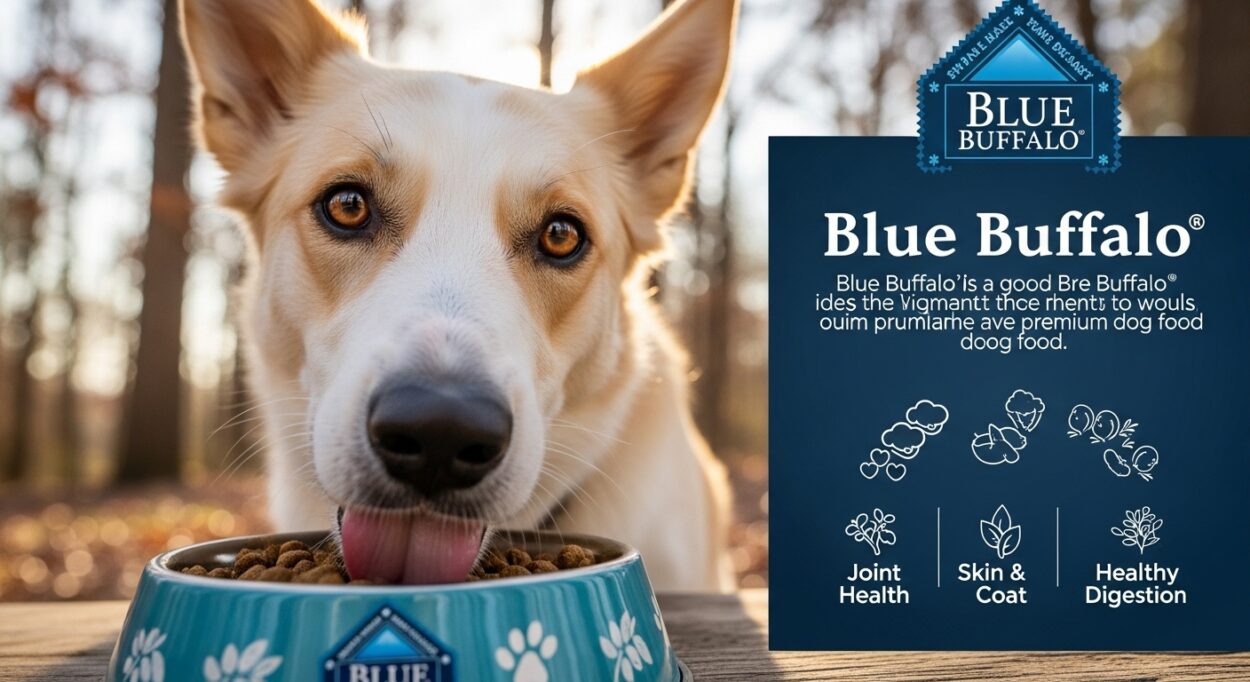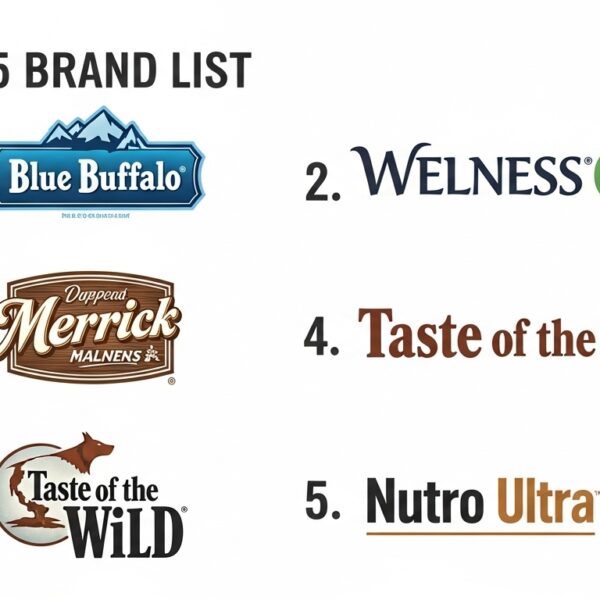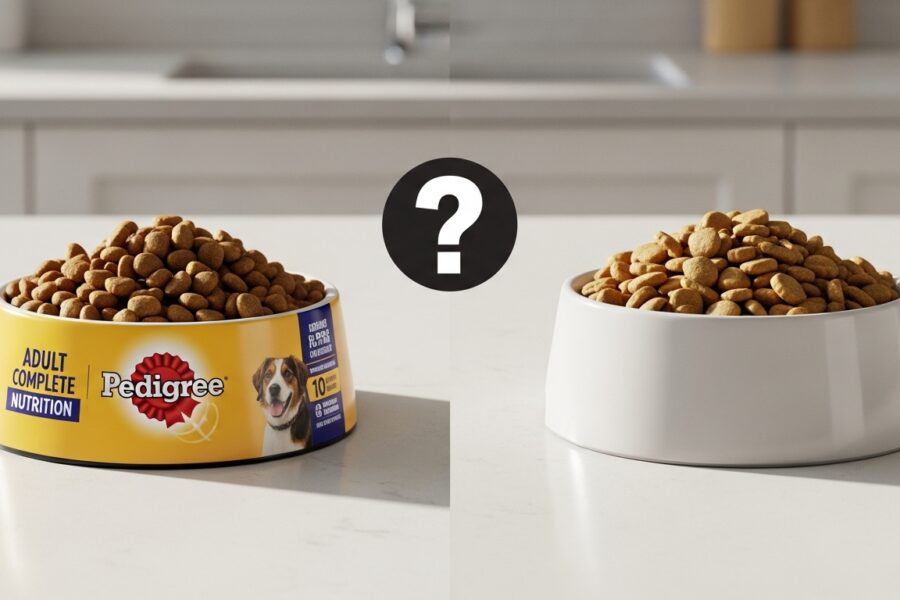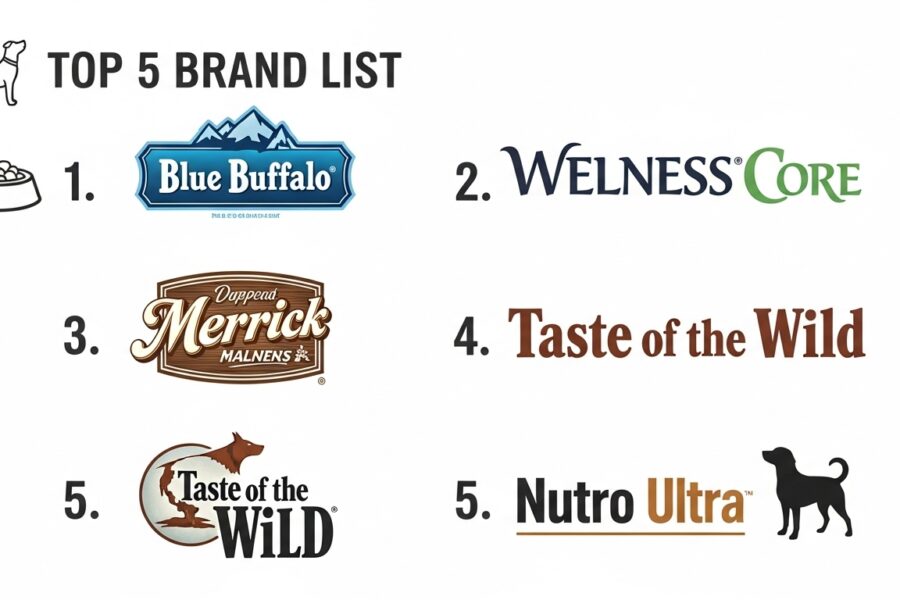Table of Contents
Introduction
When you walk down any pet store aisle in the United States, Blue Buffalo is probably one of the first dog food brands you see. Known for premium ingredients and colorful packaging, they’ve won a ton of fans—but also raised some questions. So, is Blue Buffalo good dog food, or is it just clever marketing? Let’s break down the details: what’s in the food, what experts (and regular pet parents) say, and what you need to know before you fill up your pup’s bowl.
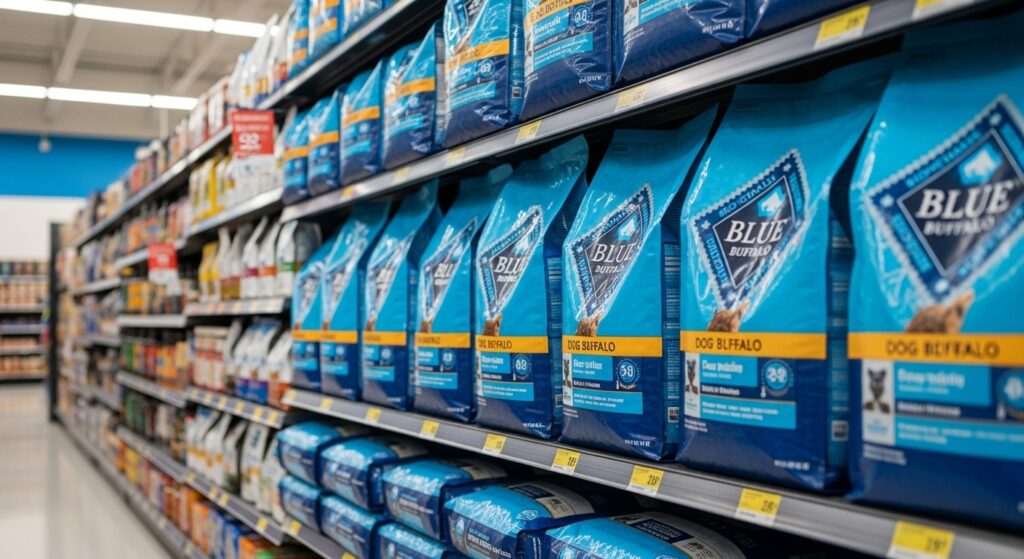
What is Blue Buffalo Dog Food?
Blue Buffalo is a U.S.-based brand that launched in 2003, quickly becoming one of the best-selling “natural” dog foods. Their lineup promises “real meat first,” no artificial flavors, no poultry by-product meals, and no corn, wheat, or soy. The brand emphasizes high-quality ingredients, and they offer formulas for puppies, adults, seniors, and dogs with special dietary needs (like grain-free or limited ingredient diets).
Key Lines in Blue Buffalo:
- Life Protection Formula (most popular)
- Wilderness (high protein, grain-free)
- Freedom (grain-free, chicken first)
- Basics (limited ingredients for sensitivities)
- Homestyle Recipe (wet/canned food)
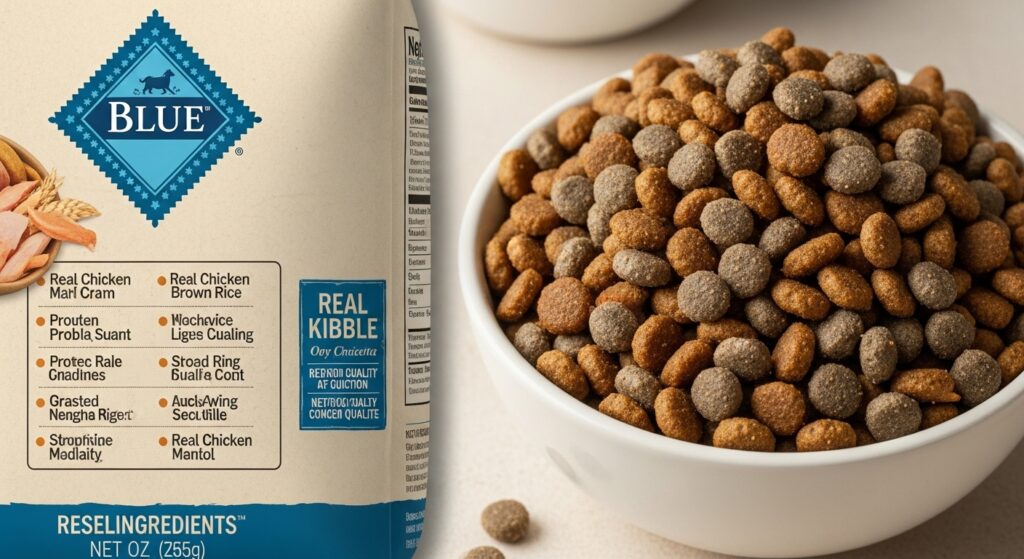
Ingredients: What’s REALLY Inside Blue Buffalo?
Let’s get down to what matters most: ingredients. Here’s what sets Blue Buffalo apart—and what some critics are saying.
Pros:
- Real Meat First: Most Blue Buffalo recipes use deboned chicken, lamb, or fish as the first ingredient.
- No Artificial Junk: You won’t find artificial preservatives, colors, or flavors.
- Added Nutrients: Includes LifeSource Bits—a mix of vitamins, antioxidants, and minerals.
- Variety: Options for every dog breed, life stage, and special need.
Cons (and Common Complaints):
- Legume-Heavy (Some Formulas): Many recipes use peas and potatoes as fillers, especially in grain-free options (this has raised concerns for dogs at risk for certain heart conditions).
- Recall History: Blue Buffalo has faced product recalls in the past (like many big brands), mainly voluntary but worth noting.
- Price: Premium price tag compared to many grocery store brands.
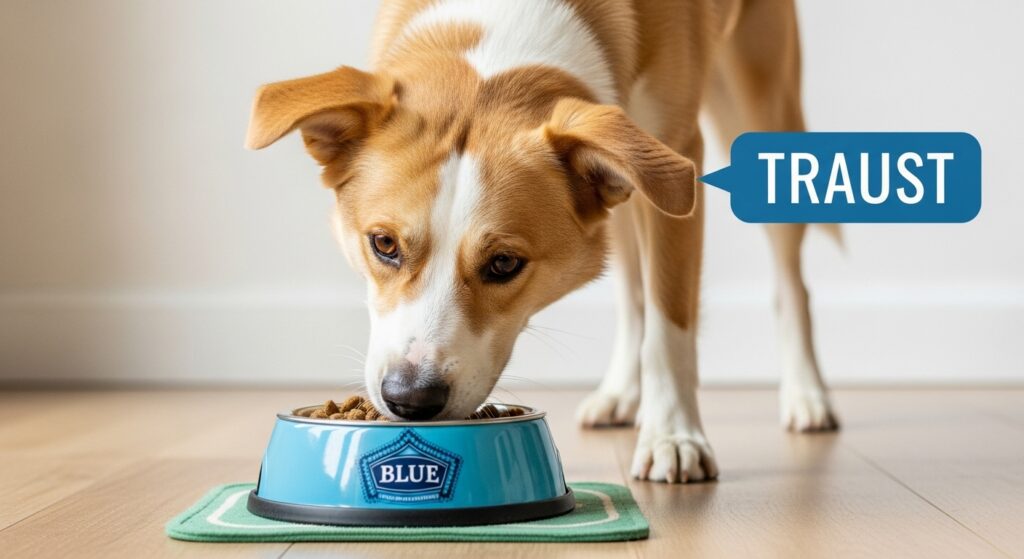
What Do the Experts Say?
Veterinarians and pet nutritionists in the U.S. are divided—and that’s totally normal for popular brands.
Positive Reviews
Most experts agree that Blue Buffalo offers high-quality, nutritionally balanced dog food—especially if your dog doesn’t have allergies or sensitivities to legumes or chicken. The “no corn, no wheat, no soy” claim is a big selling point for dogs with known grain allergies.
Cautions
Some vets are cautious about feeding exclusively grain-free dog foods (not just Blue Buffalo, but any brand). The FDA has investigated links between some grain-free diets and canine heart disease (DCM). If you have a breed prone to heart issues, talk to your vet.
Some dog owners have reported digestive issues with the brand, or that picky eaters weren’t crazy about Blue Buffalo—though others rave about their pup’s shiny coat and energy boost.
Pros & Cons of Blue Buffalo Dog Food
| Pros | Cons |
| Real meat as first ingredient | More expensive than many brands |
| No artificial colors/preservatives | Some formulas use a lot of legumes |
| Variety for all ages and dietary needs | Has had a few product recalls |
| High in antioxidants, vitamins, minerals | Not ideal for dogs with certain sensitivities |
| Widely available in U.S. stores and online |

Should You Feed Blue Buffalo to Your Dog?
So—is Blue Buffalo good dog food? For many dog owners, yes! The ingredients are solid, the formulas are diverse, and there’s a strong chance you’ll find an option that fits your pup’s needs. However, always read the ingredients and talk to your vet especially if your dog has health conditions, allergies, or you’re considering a grain-free diet.
If your dog is healthy, enjoys the taste, and the food fits your budget, Blue Buffalo can be a great pick. As with any dog food, transition slowly from your old food, and monitor your pet for any changes.
Best Shampoos for Dogs with Sensitive Skin
FAQs
1. Is Blue Buffalo recommended by vets?
Some vets do recommend Blue Buffalo—especially for dogs with grain allergies or sensitivities. Others urge caution with grain-free formulas until more research is done on long-term effects.
2. Has Blue Buffalo had recalls?
Yes, Blue Buffalo has had several product recalls over the years, mostly voluntary and quickly addressed. Always stay updated by checking the FDA website for recalls.
3. Can puppies eat Blue Buffalo?
Yes! Blue Buffalo offers puppy formulas with DHA and calcium for growing bones and brains. Make sure to pick the puppy-specific recipe.
4. Is Blue Buffalo good for dogs with allergies?
Some Blue Buffalo formulas are designed for sensitive dogs (like their Basics line). However, read the label closely—some recipes use chicken or certain grains that sensitive dogs should avoid.
5. How does Blue Buffalo compare to other premium brands?
Blue Buffalo is comparable to other premium U.S. brands like Wellness, Merrick, or Nutro. Ingredient quality is similar, but price and taste preference may vary for your dog.
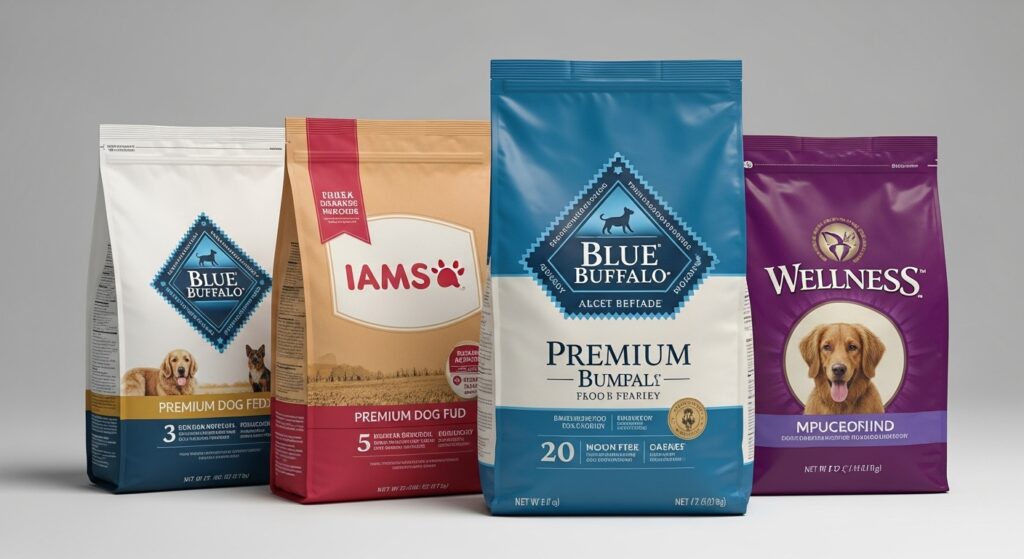
Final Thoughts
Choosing the right dog food is a big decision—your dog’s health and happiness depend on it! Blue Buffalo has earned its reputation for quality ingredients and variety, and millions of American pet parents trust the brand. Still, every dog is different—watch how your pup reacts, talk to your vet, and don’t be afraid to try a different formula if needed.
Want more pet food reviews and dog care tips? Follow our blog for honest insights and expert advice, tailored for real U.S. dog lovers!

